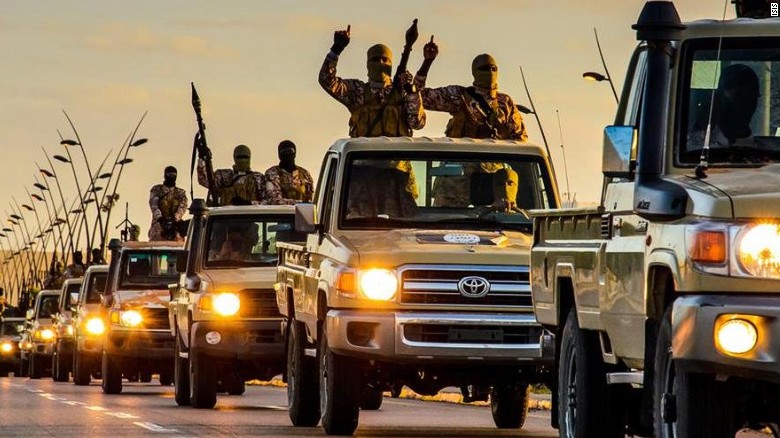Alwaght- Concerns are growing in Libya after reports emerged that ISIS terrorist group is reasserting itself in vast North Africa state plagued by infighting and lack of a central government.
ISIS is reportedly seeking to re-establish a new power base in Libya after the fall of its bastions in Iraq’s Mosul and ongoing operations to expel terrorists from Raqqa and Deir ez-Zor in Syria.
Additionally approximately one year after ISIS was ejected from its former Mediterranean stronghold of Sirte, the Takfiri terrorists emerged in the city during last week's Eid holiday, attacking an army checkpoint with a suicide car bomb and killing four soldiers. The next day, they seized temporary control of the village of Wadi al-Ahmar, 90km east of Sirte.
"I saw the armed vehicles outside my village and thought it was a normal checkpoint until I saw the black flag on the car, but by then it was too late for me to turn back," local resident Ahmed told MEE.
"It was ISIS. They questioned me, took my papers and then sent me to the mosque."
After abducting three local Salafi Imams who usually run the mosque, IS installed their own preacher to lead Eid prayers.
"This Sudanese ISIS guy preached there, telling us that ISIS were back and wanted revenge," said Ahmed.
"They warned us they were looking for anyone who supported the Misrata forces who kicked ISIS out of Sirte, or anyone who returned to their government or security jobs after ISIS left."
The ease with which ISIS took temporary control over Wadi al-Ahmar exploited a security vacuum along a stretch of Libya's central coastal highway running between checkpoints operated by rival military forces loyal to competing Libyan governments.
The eastern government's Libyan National Army (LNA), commanded by Khalifa Haftar, controls Libya's central oil terminals and has theoretical control of the coastal road until just east of Sirte, after which the road is controlled by Misrata's Bunyan al-Marsous (BAM) forces, officially loyal to the UN-installed government in Tripoli.
The oil-rich North African state descended into a deadly civil war after US-led NATO military intervention followed the 2011 uprising that led to the toppling and killing of longtime dictator, Muammar Gaddafi.
Libya’s disintegration into a cluster of chaotic internal conflicts has also made the country’s vast Mediterranean coast a choice route used by human traffickers moving thousands of disparate African migrants to Europe.



























